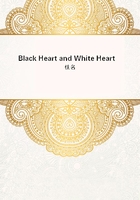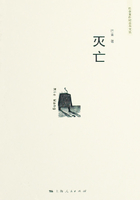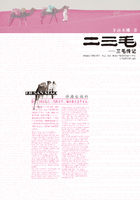There are a few MAXIMS of various times, but all seemingly drawn from custom cited or implied by Saxo as authoritative: --"It is disgraceful to be ruled by a woman." -- The great men of Teutonic nations held to this maxim.There is no Boudicea or Maidhbh in our own annals till after the accession of the Tudors, when Great Eliza rivals her elder kins-women's glories.Though Tacitus expressly notices one tribe or confederacy, the Sitones, within the compass of his Germania, ruled by a woman, as an exceptional case, it was contrary to the feeling of mediaeval Christendom for a woman to be emperor; it was not till late in the Middle Ages that Spain saw a queen regnant, and France has never yet allowed such rule.It was not till long after Saxo that the great queen of the North, Margaret, wielded a wider sway than that rejected by Gustavus' wayward daughter.
"The suitor ought to urge his own suit." -- This, an axiom of the most archaic law, gets evaded bit by bit till the professional advocate takes the place of the plaintiff."Njal's Saga", in its legal scenes, shows the transition period, when, as at Rome, a great and skilled chief was sought by his client as the supporter of his cause at the Moot.In England, the idea of representation at law is, as is well known, late and largely derived from canon law practice.
"To exact the blood-fine was as honourable as to take vengeance."-- This maxim, begotten by Interest upon Legality, established itself both in Scandinavia and Arabia.It marks the first stage in a progress which, if carried out wholly, substitutes law for feud.In the society of the heathen Danes the maxim was a novelty; even in Christian Denmark men sometimes preferred blood to fees.
MARRIAGE.-- There are many reminiscences of "archaic marriage customs in Saxo." The capture marriage has left traces in the guarded king's daughters, the challenging of kings to fight or hand over their daughters, in the promises to give a daughter or sister as a reward to a hero who shall accomplish some feat.The existence of polygamy is attested, and it went on till the days of Charles the Great and Harold Fairhair in singular instances, in the case of great kings, and finally disappeared before the strict ecclesiastic regulations.
But there are evidences also of later customs, such as "marriage by purchase", already looked on as archaic in Saxo's day; and the free women in Denmark had clearly long had a veto or refusal of a husband for some time back, and sometimes even free choice."Go-betweens" negotiate marriages.
Betrothal was of course the usage.For the groom to defile an espoused woman is a foul reproach.Gifts made to father-in-law after bridal by bridegroom seem to denote the old bride-price.
Taking the bride home in her car was an important ceremony, and a bride is taken to her future husband's by her father.The wedding-feast, as in France in Rabelais' time, was a noisy and drunken and tumultuous rejoicing, when bone-throwing was in favor, with other rough sports and jokes.The three days after the bridal and their observance in "sword-bed" are noticed below.
A commoner or one of slave-blood could not pretend to wed a high-born lady.A woman would sometimes require some proof of power or courage at her suitor's hands; thus Gywritha, like the famous lady who weds Harold Fairhair, required her husband Siwar to be over-king of the whole land.But in most instances the father or brother betrothed the girl, and she consented to their choice.
Unwelcome suitors perish.
The prohibited degrees were, of course, different from those established by the mediaeval church, and brother weds brother's widow in good archaic fashion.Foster-sister and foster-brother may marry, as Saxo notices carefully.The Wolsung incest is not noticed by Saxo.He only knew, apparently, the North-German form of the Niflung story.But the reproachfulness of incest is apparent.
Birth and beauty were looked for in a bride by Saxo's heroes, and chastity was required.The modesty of maidens in old days is eulogised by Saxo, and the penalty for its infraction was severe:
sale abroad into slavery to grind the quern in the mud of the yard.One of the tests of virtue is noticed, "lac in ubere".
That favourite "motif", the "Patient Grizzle", occurs, rather, however, in the Border ballad than the Petrarcan form?
"Good wives" die with their husbands as they have vowed, or of grief for their loss, and are wholly devoted to their interests.
Among "bad wives" are those that wed their husband's slayer, run away from their husbands, plot against their husbands' lives.
The penalty for adultery is death to both, at husband's option --disfigurement by cutting off the nose of the guilty woman, an archaic practice widely spread.In one case the adulterous lady is left the choice of her own death.Married women's Homeric duties are shown.
There is a curious story, which may rest upon fact, and not be merely typical, where a mother who had suffered wrong forced her daughter to suffer the same wrong.
Captive women are reduced to degrading slavery as "harlots" in one case, according to the eleventh century English practice of Gytha.
THE FAMILY AND BLOOD REVENGE.-- This duty, one of the strongest links of the family in archaic Teutonic society, has left deep traces in Saxo.
To slay those most close in blood, even by accident, is to incur the guilt of parricide, or kin-killing, a bootless crime, which can only be purged by religious ceremonies; and which involves exile, lest the gods' wrath fall on the land, and brings the curse of childlessness on the offender until he is forgiven.
BOOTLESS CRIMES.-- As among the ancient Teutons, botes and were-gilds satisfy the injured who seek redress at law rather than by the steel.But there are certain bootless crimes, or rather sins, that imply "sacratio", devotion to the gods, for the clearing of the community.Such are treason, which is punishable by hanging; by drowning in sea.















